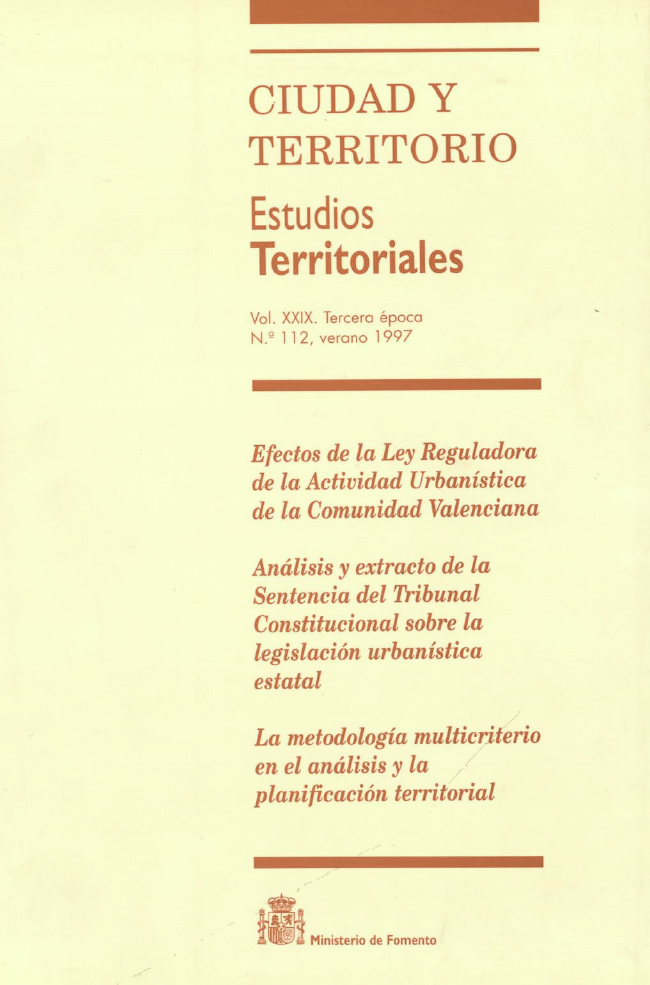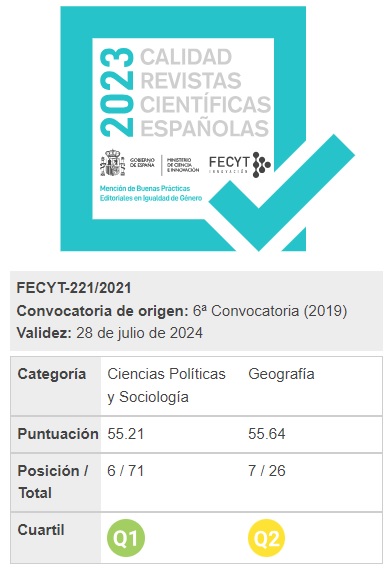The new Valencian autonomous regional law governing city and territorial planning activities (LRAU): Causes and consequences of a transformation
Keywords:
Ley Reguladora de la Actividad urbanística, Comunidad Autónoma de Valencia, Legislación urbanísticaAbstract
The paper comments that the two years that the LRAU (Ley Valenciana 6/1994) has been on the books have seen an intense process of simplification for city and territorial planning activities in the Region. Private investment in Public Works has shown a significant rise and this at all levels of local government throughout the region. The novel figure of the city and territorial planning agent is here seen to have been enthusiastically accepted and to have led to changes in the way that such planning is now carried through. Public tendering to choose these is said to be fierce. The differences as between landowners and these planners, along with the social underpinning to this and the present formulae for cooperation between both, are likewise seen as features of this fresh approach to these activities as a whole.
Downloads
Downloads
Published
How to Cite
Issue
Section
License
Copyright (c) 1997 Francisco Blanc Clavero

This work is licensed under a Creative Commons Attribution-NonCommercial-NoDerivatives 4.0 International License.
Considering the provisions of the current legislation on Intellectual Property, and in accordance with them, all authors publishing in CyTET give -in a non-exclusive way and without time limit- to the Ministry of Transport, Mobility and Urban Agenda the rights to disseminate, reproduce, communicate and distribute in any current or future format, on paper or electronic, the original or derived version of their work under a Creative Commons Attribution-NonCommercial-NoDerivative 4.0 license International (CC BY-NC-ND 4.0), as well as to include or assign to third parties the inclusion of its content in national and international indexes, repositories and databases, with reference and recognition in any case of its authorship.
In addition, when sending the work, the author(s) declares that it is an original work in which the sources that have been used are recognized, committing to respect the scientific evidence, to no longer modify the original data and to verify or refute its hypothesis. Author(s) also declare that the essential content of the work has not been previously published nor will it be published in any other publication while it is under evaluation by CyTET; and that it has not been simultaneously sent to another journal.
Authors must sign a Transfer of Rights Form, which will be sent to them from the CyTET Secretariat once the article is accepted for publication.
With the aim of promoting the dissemination of knowledge, CyTET joins the Open Journal Access (OA) movement and delivers all of its content to various national and international indexes, repositories and databases under this protocol; therefore, the submission of a work to be published in the journal presupposes the explicit acceptance by the author of this distribution method.
Authors are encouraged to reproduce and host their work published in CyTET in institutional repositories, web pages, etc. with the intention of contributing to the improvement of the transfer of knowledge and the citation of said works.








 Enlace a CyTET en Linkedin
Enlace a CyTET en Linkedin